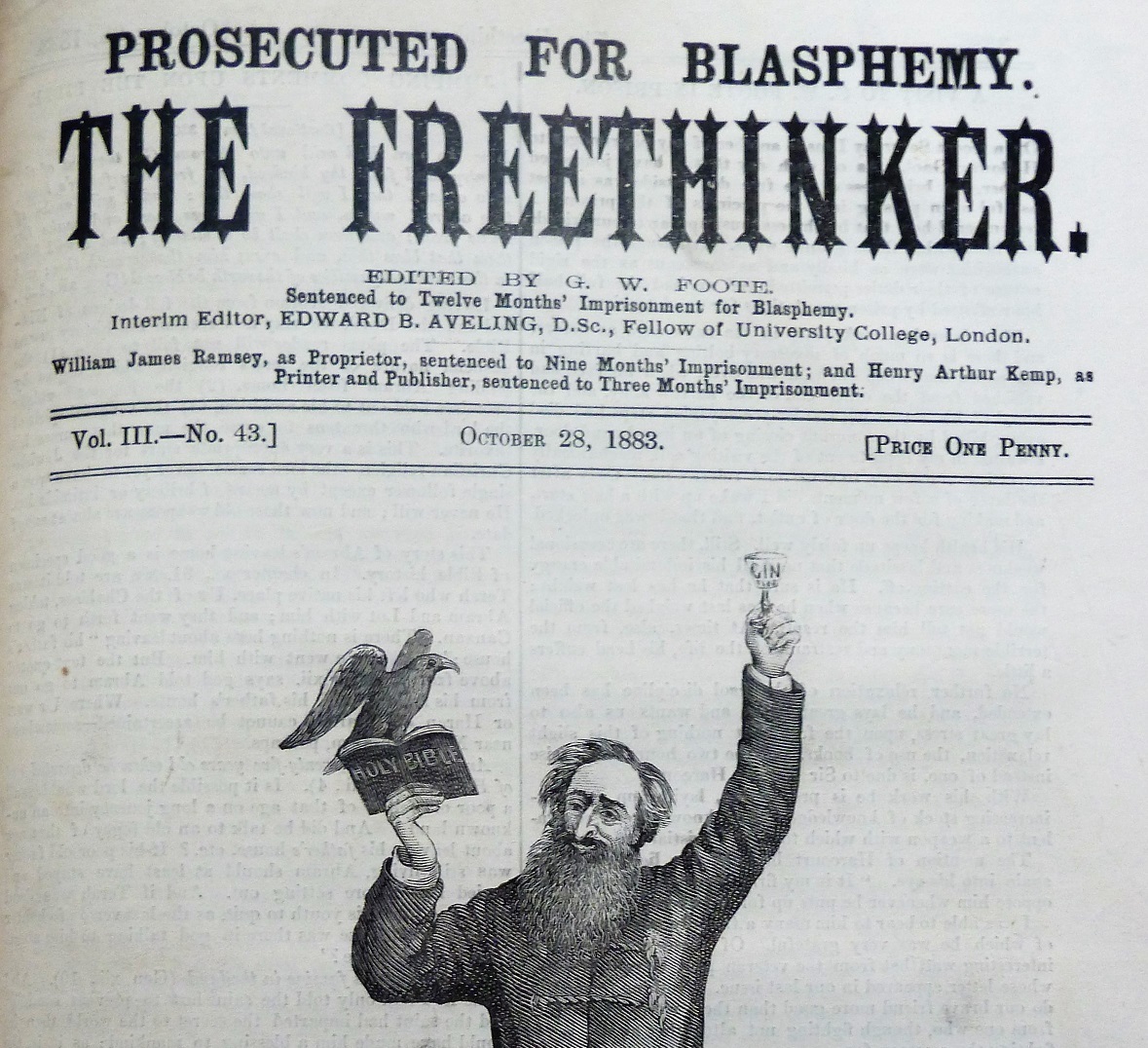Version française / Séminaires
- Libellé inconnu,
W19 – Presse et libre pensée
Publié le 18 octobre 2023
–
Mis à jour le 9 septembre 2024

Le séminaire Nineteenth-Century Worlds (W19) accueille des chercheuses et chercheurs spécialistes d’histoire du XIXe siècle. Il s'intéresse en particulier à la circulation des personnes, des idées, des textes et des savoirs dans le monde anglophone et au-delà, dans une perspective d'histoire globale, transnationale ou impériale.
Date(s)
le 2 février 2024
14h-16h
Lieu(x)
Bâtiment Max Weber (W)
Salle de séminaire 2
Clare Stainthorp (Queen Mary University of London), « The British Freethought Movement and Periodical Forms »
The British freethought movement gave voice to primarily artisan and working-class radicals who rejected orthodox religion and were committed to secular reform. Their weekly and monthly periodicals created and sustained communities of thought and practice where freethinkers could voice their opposition to received religious and political opinions and articulate alternatives. Taking a literary perspective, I am interested in modes of writing that are self-conscious about their relationship with, vision for, and shaping of the freethought movement as a counterpublic, such as editorial matter, dialogue and debate, poetry, life writing, and history writing. Furthermore, I suggest that the specificity of the periodical form – a cheap publication that encouraged reader participation and is defined by miscellaneity and multivocality – was itself crucial to freethinkers’ ability to conceptualise a collective identity that was nonetheless grounded in individual freedom of speech, thought, and action.
La séance est accessible à distance. Merci d'écrire à Auréliane Narvaez et Michaël Roy pour obtenir le lien de connexion.
The British freethought movement gave voice to primarily artisan and working-class radicals who rejected orthodox religion and were committed to secular reform. Their weekly and monthly periodicals created and sustained communities of thought and practice where freethinkers could voice their opposition to received religious and political opinions and articulate alternatives. Taking a literary perspective, I am interested in modes of writing that are self-conscious about their relationship with, vision for, and shaping of the freethought movement as a counterpublic, such as editorial matter, dialogue and debate, poetry, life writing, and history writing. Furthermore, I suggest that the specificity of the periodical form – a cheap publication that encouraged reader participation and is defined by miscellaneity and multivocality – was itself crucial to freethinkers’ ability to conceptualise a collective identity that was nonetheless grounded in individual freedom of speech, thought, and action.
La séance est accessible à distance. Merci d'écrire à Auréliane Narvaez et Michaël Roy pour obtenir le lien de connexion.
Mis à jour le 09 septembre 2024












